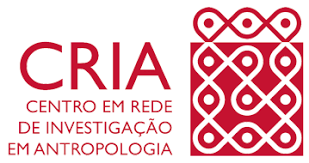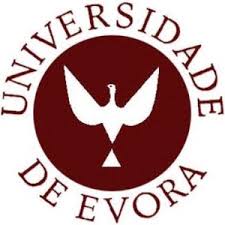Coordenação
Rosário Pestana
Jorge Freitas Branco
Investigadores
Ana Gaipo
António Medeiros
Álvaro Sousa
António Ventura
Carlos Batista
Celina da Piedade
Cyril Isnart
Ema Pires
Helena Marinho
Jean-Yves Durand
Joana Rodrigues
Jorge Alexandre Costa
José Curbelo
Lucas Wink
Maria José Barriga
Patrícia Costa
Paulo Lima
Pedro Moreira
Pedro Nunes
Raquel Melo
Rui Madeira
Rui Marques
Sheila Nunes
Sofia Lopes
Susana Moreno
Thomas Garcia

The Instituto de Etnomusicologia – Centro de Estudos em (INET-md) is an interdisciplinary research unit with headquarters at the Faculty of Social Sciences and Humanities – Universidade Nova de Lisboa, and three branches at the Department of Communication and Arts (DeCA), University of Aveiro, the Faculdade de Motricidade Humana, University of Lisbon, and the Porto School of Education – Polytechnic Institute of Porto. The unit integrates 71 researchers and 104 PhD students. INET-md fosters a culture of excellence in advanced training, research, performance and artistic creation embedded within an international environment. Because the research carried out is multidisciplinary and transversal, research activities and collaboration among INET-md researchers and PhD students take place within and across the following six research groups: (1) Ethnomusicology and Popular Music Studies; (2) Historical and Cultural Studies in Music; (3) Dance Studies; (4) Creation, Theory and Music Technologies; (5) Performance Studies and Performance as Artistic Research; (6) Education and Music in Community. INET-md was evaluated in 2019 as Excellent, through an international assessment process promoted by the Portuguese Foundation for Science and Technology. Its ranking position is 14th of 178 Portuguese research units, and 3rd of 72 research units in Humanities. INET-md has more than 15 on-going national and international research projects. In order to promote internationalization and competitiveness, besides participating in international networks, INET-md regularly invites scholars from leading universities. As a part of the Department of Communication and Art, INET-md/Aveiro works closely together with the other branches of this Department: Communication, Design and Art Studies. INET-md/ Aveiro is hosted in three multi-function rooms and several offices of the DeCA building, equipped with all physical and technological facilities for researching and teaching the performing arts. Moreover, its members have full access to UA’s and DeCA’s infrastructures, including the new DeCA building, dedicated to new media technologies, equipped with multi-function rooms and an auditorium. For further details go to: http;//www.inetmd.pt

University of Aveiro (UAVR) – Since its beginning, University of Aveiro (UAVR) has transformed itself into one of the most dynamic and innovative universities in the country. UAVR has now around 14000 students distributed by 16 Academic Departments and 4 Polytechnic Schools which work together in an inter-disciplinary manner according to their academic and research affinities.
UAVR is a place for research, where innovative products and solutions are developed to contribute to the advance of science and technology. It is a privileged partner for companies and other national and international organisations with which the University cooperates in numerous projects and for which it provides important services.During 2016, 282 research and technology transfer projects were active in UAVR. 95 of these projects are/were funded by International and European Programmes, of which 20 by the 7th Framework Programme, 25 by the Horizon 2020 and 21 by the ERASMUS +. The projects developed by UAVR are developed under 19 research centres, of many different scientific areas, namely environmental and marine; ceramics and composite materials; nanostructures, nanomodelling and nanofabrication; telecommunications; electronics and telematics engineering; mechanical technology and automation; geo-technologies and geo-engineering; cellular biology; organic chemistry of natural products; mathematics and applications; education and behavioral sciences; languages and cultures; technologies and communication sciences; governance, competitiveness and public policy; politics for higher education; music and design. 52% of these research centres have been classified as very good, excellent or exceptional in the last evaluation promoted by the National Foundation for Science

CEI-IUL (Center for International Studies) is a university-based multidisciplinary research center of the Instituto Universitário de Lisboa (ISCTE-IUL). CEI-IUL aims at promoting interdisciplinary research in Social Sciences, International Relations and Economy, focusing in its areas of geographic specialization: Africa, Asia, Europe and Transatlantic Relations. One of the main goals of the Centre is to enhance the scientific skills of ISCTE-IUL?s researchers and teachers in the areas of global security, development studies, international relations and social movements, creating innovative connections between different disciplines. Taking advantage of the ISCTE-IUL double specialization on Social Sciences and Economics and Management, this dual approach is of upmost importance to the analysis of international issues. As a research unit of excellence, CEI-IUL also aims at: carry on academic research on Social Sciences, International Relations, Development Studies, Economics and Management, prioritizing issues and areas relevant for international studies.

CRIA is a dynamic network based on four universities (FCSH-Nova, ISCTE-IUL, U. Coimbra and UMinho). This organisation enables each institutional division to autonomously develop its own activities while they all share the fundamental resources necessary to the management, fundraising, research dissemination, teaching and knowledge transfer, while encouraging the mobility of CRIA?s researchers between the centre?s different institutional grounds. CRIA brings together scholars with diverse backgrounds, organised in four major research groups: (1) Circulation and Place-Making, (2) Environment, Sustainability, and Ethnography, (3) Governance, Policies and Livelihoods, and (4) Practices and Politics of Culture. Complementary thematic lines and working groups aggregate researchers around particular topics and contexts of research, such as: (1) Anthropology of Health, (2) Visual Anthropology and Arts Laboratory, (3) AZIMUT Studies in Arab and Islamic Contexts, (4) Anthropology of Religion, and (5) Informal Resources, State and Social Capital. CRIA promotes a transnational network of research in anthropology that maximises resources and skills, resulting in a thickened scientific production at theoretical, methodological and thematic levels. Its consolidation is achieved by CRIA?s involvement, both as partner or host institution, in several projects and programmes in theoretical and applied research, nationally or internationally funded by entities like FCT and Horizon 2020 (Hera, ERC, COST actions), or the private sector and civil society.

Created in 1985, the Polytechnic of Porto (P.PORTO) is the largest and the most dynamic Polytechnic in the country, occupying the first position in the ranking of the Polytechnic and, in conjunction with major universities, is placed in the upper reaches of the ranking of National Higher Education.The P.PORTO considers its mission to be the leader of Polytechnic subsystem in Portugal, taking its social responsibility in the presence of the community and society, in an international frame of reference, demanding for the excellence. The Schools constitute the dynamic axis of an open, challenging and multicultural community and turn a complex of modern labs and equipment into living entities. The Schools are the link between the three Campuses, 30 research centres, more than 18,000 students, 58 undergraduate degrees and 50 masters’ degrees. P.PORTO has 30 scientific research groups in its eight Schools.

ISCTE – University Institute of Lisbon (ISCTE-IUL)
is a public university established in 1972 pursuing teaching, research
and community service activities. With more than 9000 students enrolled
in undergraduate (46%) and postgraduate (54%) programs, 450 teachers and
240 non-teaching staff, the University is proud to be one of the most
dynamic and innovative universities in the country producing,
transmitting and transferring knowledge to society according with the
highest international standards. It is a research oriented university
with a multi-disciplinary and inter- disciplinary approach, that
includes eight research units, six laboratories (Digital Fabrication
Laboratory, Laboratory of Social and Organizational Psychology
Communication Sciences Laboratory, Image Laboratory, Computer
Laboratory, and Telecommunications Laboratory), as well as the
Departments and Schools that are the main organizational structures of
the Institute (see www.iscte.pt). The research units are centers with
high quality and national merit and with significant contributions of
international relevance in their research areas.
The strategic objectives of ISCTE-IUL are: innovation, quality,
internationalization and development of an entrepreneurial culture in
the main scientific fields of Business Studies & Economics, Social
Sciences & Public Policy, and Information and Technologies &
Architecture.

The University of Évora is organized in 4 Schools: Arts, Sciences and Technology, Social Sciences and Nursing and offers 41 undergraduate and 120 postgraduate degrees. Research and Development (R&D) covers several scientific areas through a network of 14 Research Units, all of them submitted to international evaluation, under the coordination of the Institute for Research and Advanced Studies. Furthermore, the University of Évora established three Chairs in areas of excellence: Biodiversity, Renewable Energies and Heritage, which are sponsored by private capital holders. Over the last years, the University has fostered a close link with the community. Such interaction has been possible through the creation of working networks and dissemination of knowledge such as the participation in the Science and Technology Park as well as through the establishment of protocols and contracts for the supply of services in partnerships with Companies, Universities, Associations and Institutes. The main R&D areas are: Agronomy and Biodiversity; Geophysics, Environment and Landscaping; Materials and Surface Science; Economics and Business Studies; Computer Sciences and Software Interoperability; Social and Political Sciences, History, History of Art, Science and Cultures; Applied Mathematics; Education; Linguistics and Literature; Elderly Healthcare. The 150 running R&D projects are developed through national and international partnerships, FP7 and H2020 funding, FCT as well as by private sponsorship.

